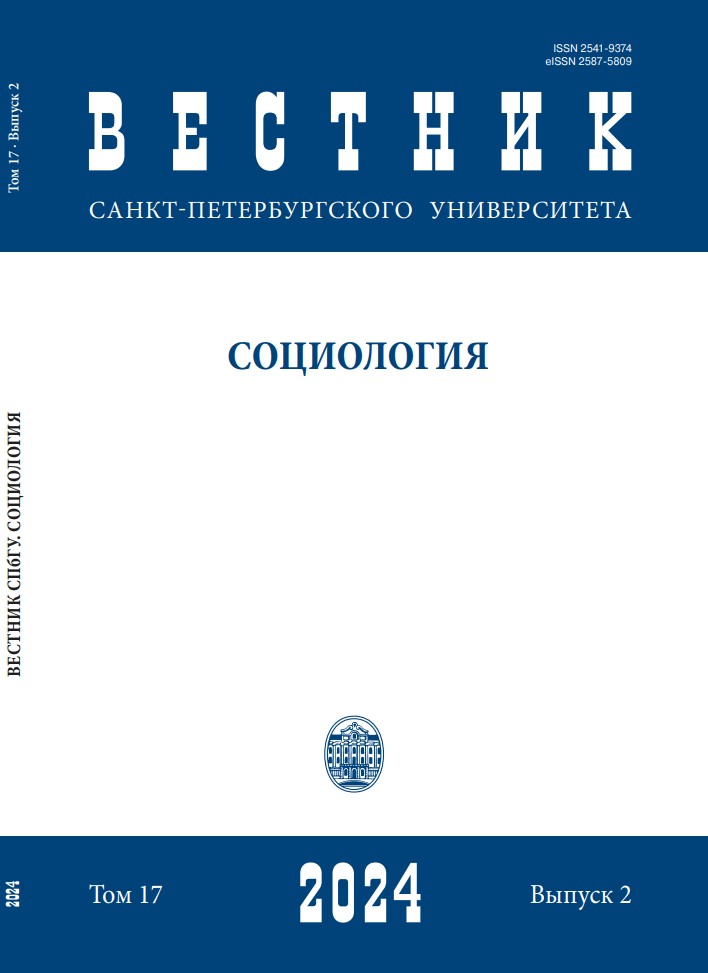Engagement of Russian children in physical activity and sport: Opportunities and barriers
DOI:
https://doi.org/10.21638/spbu12.2024.205Abstract
The article analyzes the factors of Russian children’s engagement in physical activity and sport. The empirical basis of the study is the results of the all-Russian representative survey of parents with children 3–5 and 6–12 years old (N = 2274, 46 subjects of the Russian Federation), as well as four focused groups with parents of children 3–5 and 6–12 years old in Moscow, St. Petersburg and Tambov. The subject field of the study covers physical activity practices of children of two age subgroups, factors of their involvement in sports, opportunities and facilities for appropriate activities in the community. The methodological basis of the study is the sociological model of children’s involvement in physical and sport activity developed by the authors. The study found that according to parents’ assessments, physical activity practices were predominant in both groups of children, with a small proportion of them practicing sports, especially in the 3–5-year-old subgroup. The authors conclude that the main factor stimulating interest in physical activity and sport, both children and their parents, is a positive emotional and rational perception of systematic physical activity. At the same time, parents are predominantly focused on general physical training of their children, while a relatively small share of parents are interested in high-performance sports. According to the results obtained, the key motivators of children’s involvement in physical activity are joint sports activities of parents and children and the father’s personal example, which is noticeably ahead of TV programs, advice from coaches, doctors and others. Parents lack the necessary knowledge to engage in physical activities with their child, as well as lack of motivation for these activities are the main barriers to the involvement of children in physical activity and sport. It was noted that despite a fairly high level of development of sports infrastructure at the place of residence of Russians, the dominant type of these facilities are still simple outdoor sports grounds, which are in a condition that does not always dispose children, especially at an early age, to practicing on them.
Keywords:
physical activity, sport, children, parents, involvement, motivation, practices, conditions, opportunities for practicing
Downloads
References
Downloads
Published
How to Cite
Issue
Section
License
Articles of "Vestnik of Saint Petersburg University. Sociology" are open access distributed under the terms of the License Agreement with Saint Petersburg State University, which permits to the authors unrestricted distribution and self-archiving free of charge.




